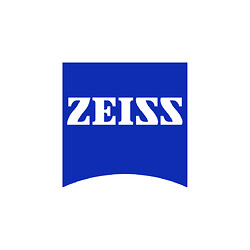It couldn’t be simpler
AI-assisted ZEISS Solution inspects implant coatings automatically.
Smith+Nephew is a London-based medical technology group specializing in bone and tissue reconstruction, wound healing and joint replacement. At the site in Aarau, Switzerland, hip shaft prostheses are coated, among other things. An AI-supported software solution in combination with the ZEISS Axio Imager Z2m light microscope is used for quality inspection. The ZEISS solution delivers the results within a few minutes thanks to automated image segmentation.
AI-assisted ZEISS solution inspects implant coatings automatically
More than 400,000 hip and knee prostheses are manufactured in Aarau each year. A large proportion of these are coated in five state-of-the-art vacuum chambers at temperatures of up to 20,000 degrees Celsius, either purely with titanium or with titanium and hydroxyapatite. The latter is a bone substitute substance that improves or stimulates the ingrowth of the bone follicles into the porous prosthetic surface.
The required thickness of the titanium and hydroxyapatite layer in a POLARSTEM for hip reconstruction is between 155 and 305 micrometer. Since the group, which operates in around 100 countries, has been coating implants in Aarau, the ZEISS Imager light microscope has been used to check the layer thickness. Since summer 2022, the medical technology company in Aarau, which employs around 15,000 people worldwide, has also been working with a ZEISS Axio Imager.Z2m.
AI-assisted image segmentation
Until now, measuring the layer thicknesses required a trained eye and a lot of human intervention. Without AI assistance, the analysis process therefore takes 45 to 60 minutes for a POLARSTEM. The process has been ten times faster since Smith+Nephew started using the ZEISS Axio Imager.Z2m light microscope. With this one-click solution, a comprehensive protocol with values for layer thickness and porosity is available after just five to seven minutes. This has two advantages for Smith+Nephew: Operators can now use more of their working time for other tasks such as taping the implants. In addition, potential manufacturing problems can now be identified more quickly.
This drastic acceleration of the measurement process is made possible by AI-assisted image segmentation. Operators of the ZEISS Axio Imager.Z2m now only need to align the sample and start the ZEISS ZEN core software – everything else is automated. “It couldn't be simpler,” says Stéphane Monod, responsible for quality at Smith+Nephew's Aarau site. “And no matter who would examine this sample, the measurement results would always be the same” – another advantage, not only for medical technology companies.
Equipped for the future
The Senior Manufacturing Quality Engineer is also enthusiastic about the AI-assisted ZEISS solution for another reason: “We are also equipped for future standard requirements with ZEISS Axio Imager.Z2m.” This is because in addition to checking the coating thickness, the porosity of the applied titanium and hydroxyapatite layer is also determined. This is a characteristic value that implant manufacturers will have to demonstrate in the future according to the ISO 13485 standard.
And there is another point in favor of the ZEISS solution, which has been in use since the summer of 2022: With ZEISS arivis Cloud by ZEISS, those responsible at Smith+Nephew can train their own deep learning models for image segmentation without any programming knowledge and thus in a very user-friendly manner. If Smith+Nephew brings new coatings to the market at some point, then, according to Monod, “this will also accelerate the accreditation process."
Download the whole story here.
